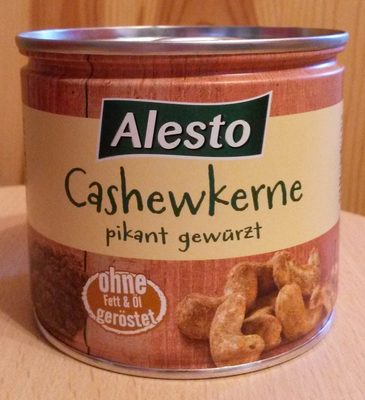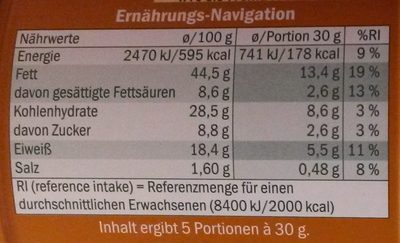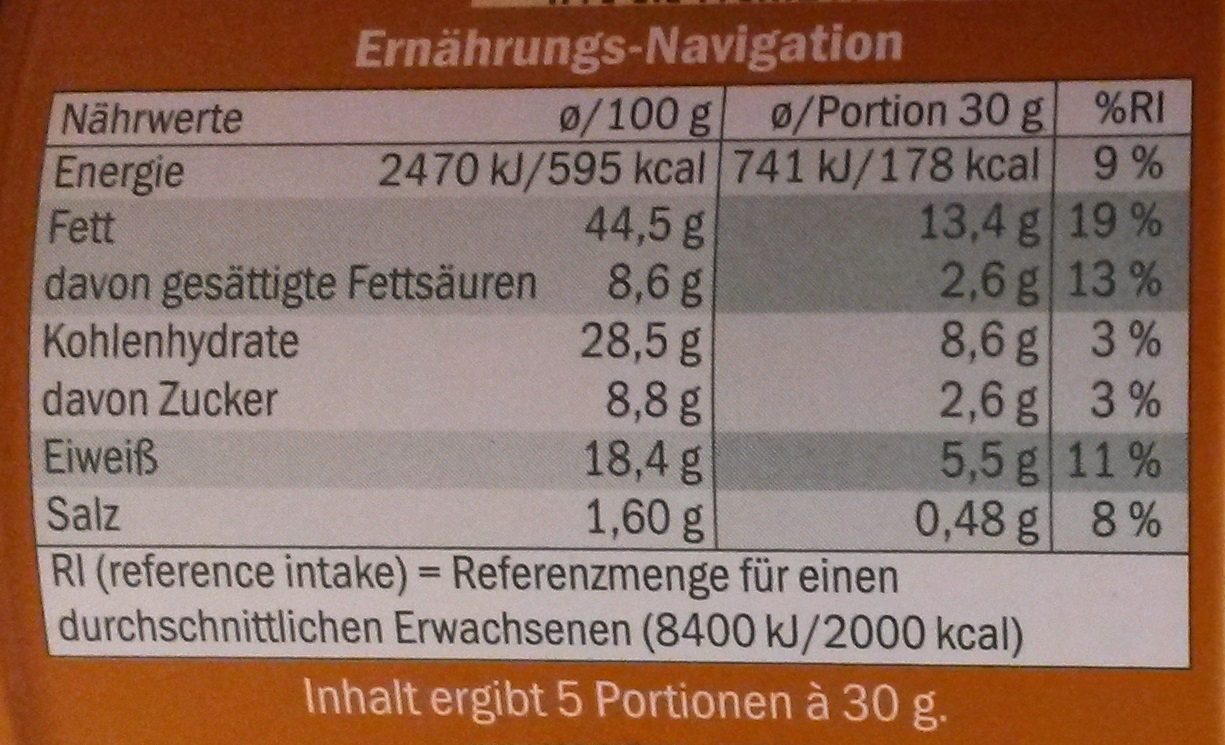Cashews gewürzt - Lidl Alesto - 150g
Ambiguous barcode: This product has a Restricted Circulation Number barcode for products within a company. This means that different producers and stores can use the same barcode for different products.
×
This product page is not complete. You can help to complete it by editing it and adding more data from the photos we have, or by taking more photos using the app for Android or iPhone/iPad. Thank you!
×
Barcode: 20524838
Common name: Cashewkerne, pikant gewürzt, ohne Fett und Öl geröstet
Quantity: 150g
Brands: Lidl Alesto
Categories: Plant-based foods and beverages, Plant-based foods, Nuts and their products, Nuts, Cashew nuts
Labels, certifications, awards: de:Cashewnüsse, de:Lebensmittel, de:Nüsse, de:Nüsse-und-ihre-produkte, de:Pflanzliche Lebensmittel, de:Pflanzliche-lebensmittel-und-getränke
Stores: Lidl
Matching with your preferences
Environment
Carbon footprint
Packaging
Transportation
Report a problem
Data sources
Product added on by date-limite-app
Last edit of product page on by eqno.
Product page also edited by anticultist, kiliweb, openfoodfacts-contributors, packbot, prepperapp, yuka.R1o5UU5hb2ZwYVFRcE1NNzhqREwyOTlSNUsyN1lXK25Dc29ESWc9PQ, yukafix.










